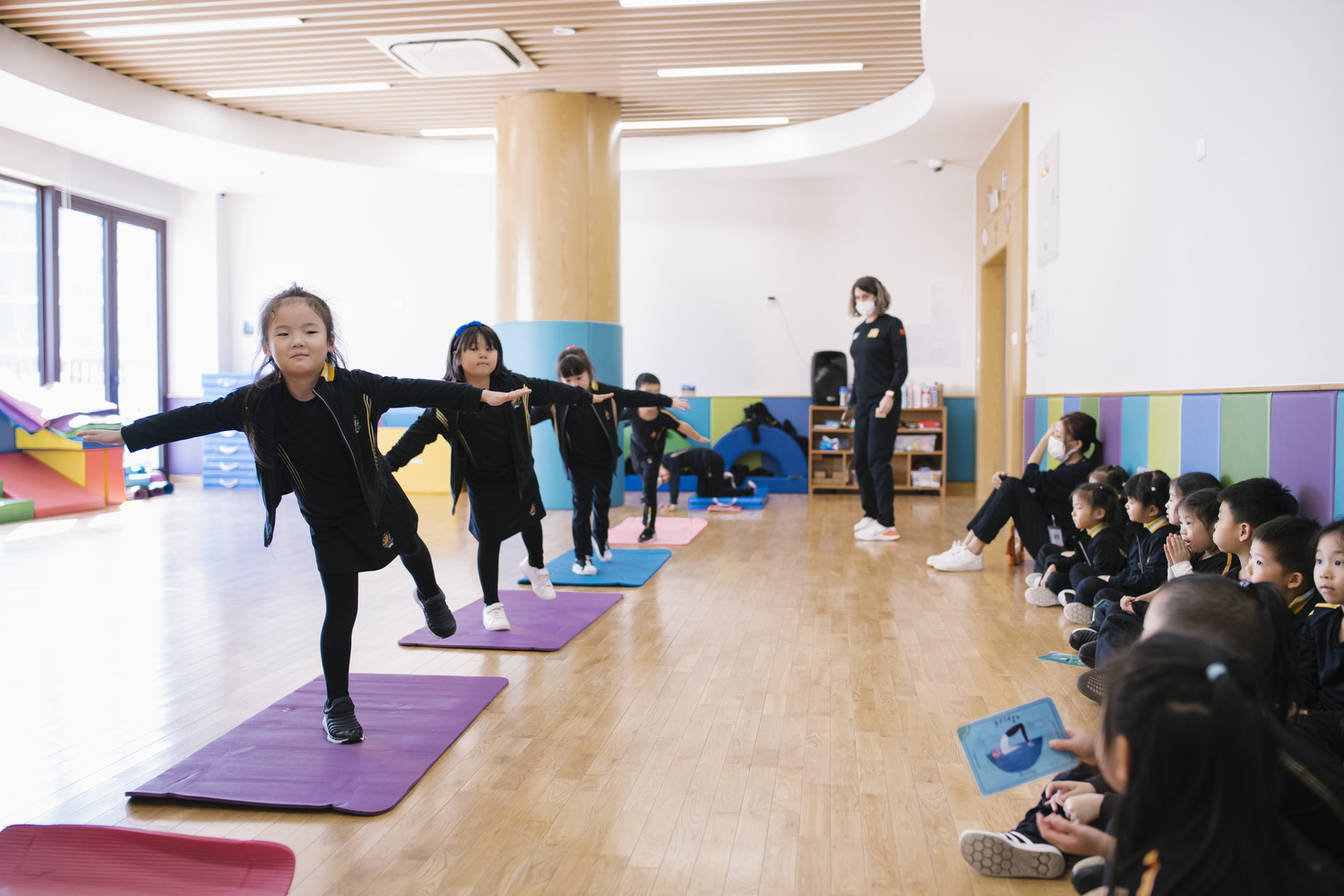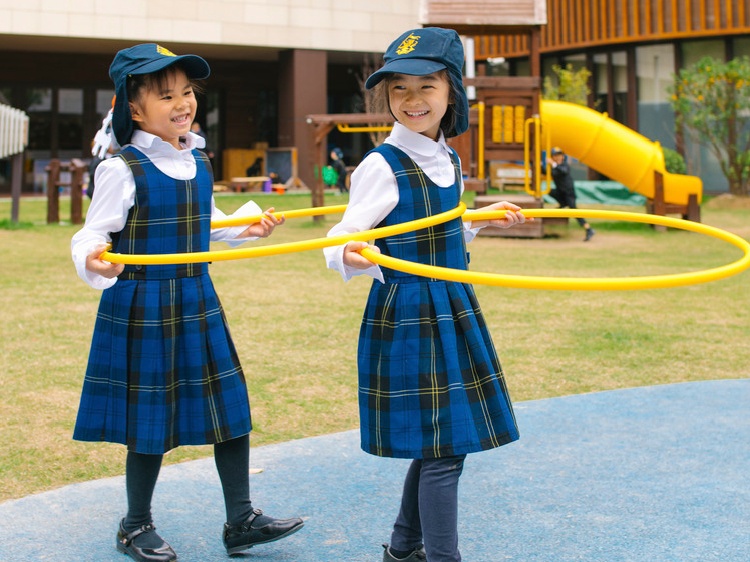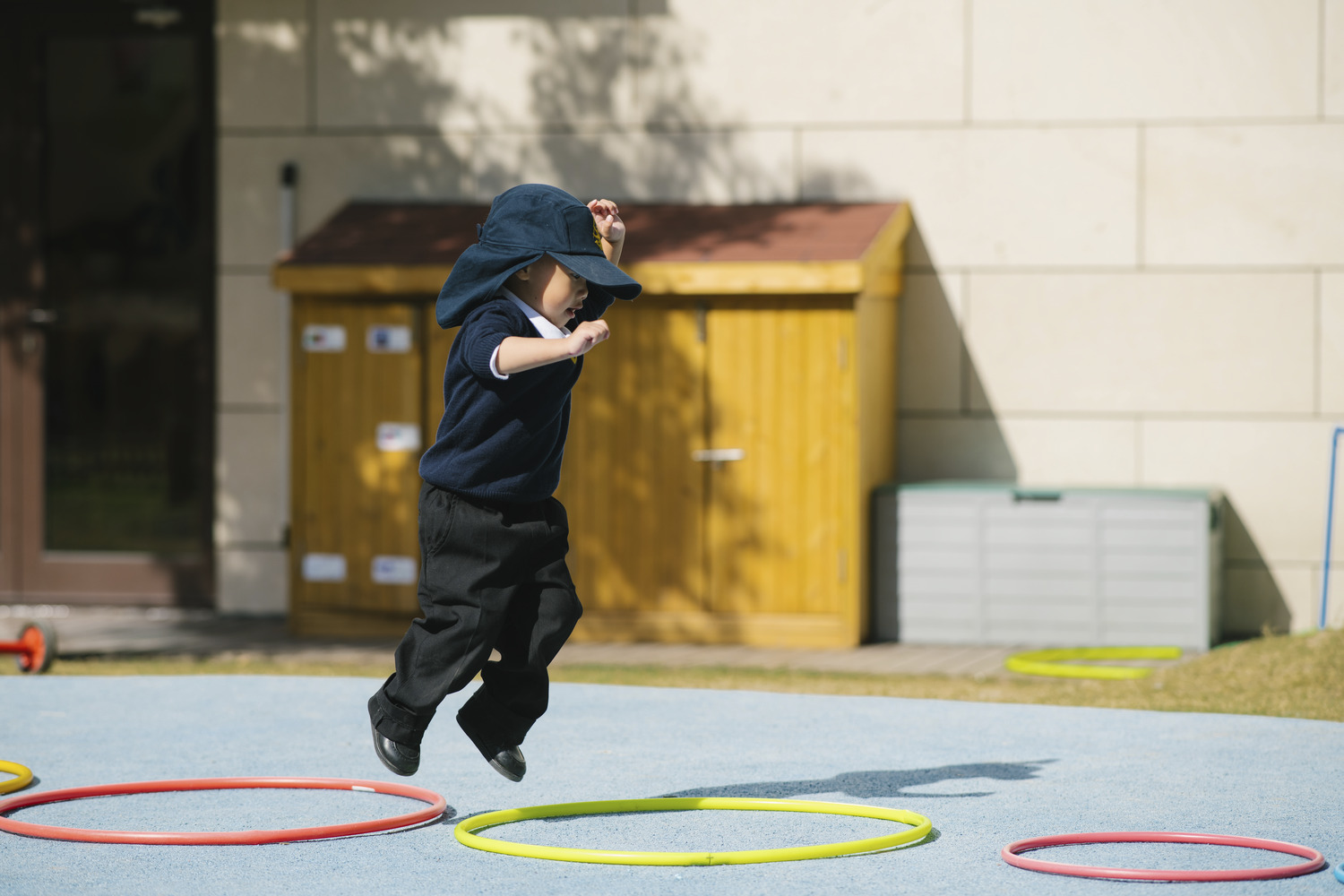
Inês Apóstolo de Oliveira
PE Teacher
The relationship between Physical Development and the other prime areas of learning ‘Physical Development supports Personal, Social and Emotional Development as increasing physical control provides experiences of the self as an active agent in the environment, promoting growth in confidence and awareness of control. It supports Communication and Language because a child who can effectively use the large movements, gestures and the fine movements involved in speech is able to convey messages to others.
Tickell Review of the EYFS, 2011
In a digital world where children are spending more and more time looking at screens and less time playing outdoors and being active, we believe that physical activity, both indoor and outdoor is important here at Huili Nursery because we know that children who are active will develop their fundamental motor skills as well as their social skills in a safe, educational and fun environment, supporting their development and growth through the ages 2 to 6.
When teaching Physical Play, our main team goal is to help children understand the importance of physical activity through activities and games that are engaging, purposeful and fun. By doing this, we believe that children will grow with a passion for staying active and healthy.

Our children learn through play, constantly using large muscle movements to explore their immediate environment, developing fine motor control through manipulating materials and using tools and equipment. Being physically active not only strengthens muscles and develops the heart and lungs, it also supports the development of the brain.
As teachers we are always looking for new and efficient ways to improve children’s learning. In Physical Play we differentiate our teaching through the years and within each class, personalising our planning to suit each child, promoting challenges that are adjustable to each level of skill.
How does it work?
Each Year group, from EY1 to EY4 have 6 week projects that run throughout the year. These projects are themes that are adaptable and linked to the learning journeys in their classrooms. The purpose of the projects is to focus on the learning goals and skills using a theme that is fun and engaging.
In EY1 we start the year by helping children settle into the environment. We want to make sure that they are happy and ready to trust us and enjoy our activities. Children at the age of 2 are steadier and start to run safely and jump. We help them improve their coordination through our project “Discovering Movement” encouraging the children to explore their large muscles movements.
We also promote the development of their social skills through our project “Cooperative Games – Interactions” where children start playing simple games that encourage those interactions, especially using balloons and balls which are always a success and develop their hand-eye and foot-eye coordination. Later, when expectations are settled and children are more confident, we start using outdoor learning as a different way to promote physical activity, including climbing and jumping. As they year passes by, children will become increasingly interested in playing with other children.

In EY2 the development of large muscle groups means that our children can now master activities like climbing or pedalling a tricycle. Our first project is “Balance and movement” as it is important for children to develop awareness, control, confidence and coordination of their large-muscle movements as well as having the ability to hold a stationary position with control.
We do activities and games both indoor and outdoor where children have the opportunity to explore a setting that is more challenging and where they can practise their ball skills: throwing, catching and kicking.
To continue the development of their social skills we promote “team-work”. This concept is new to them and it is important at this age because it doesn’t only provide exercise but also helps children build social-emotional skills such as self-confidence, social awareness, and the ability to take risks.

The activities and games for EY3 children always have the purpose of developing their confidence in their movements and balance in a range of ways and makes sure that they start orienting themselves moving around confidently and being aware of the surroundings.
During our “Ball skills” project we use different small apparatus such as balls and beanbags with different purposes: rolling, catching, throwing and kicking. In the gymnastics project children experiment different ways to travel whilst developing the basic movement actions of rolling, running, skipping, stopping and jumping.
Our Yoga project gave the children the opportunity to learn about breathing, awareness, meditation, and healthy movement which was a first for many of them. We explore yoga through storytelling, using a story’s characters and plot to learn the basic yoga moves. This allows the children to develop their understanding of yoga through a fun and imaginative way.
On a social level, we talk about the Nursery values to help them understand what makes a good friend as they learn how to share, how to consider the feelings of others, and how to listen. At their age we also start talking about being healthy, not only by staying active but also eating healthy.

EY4 children become much more confident in their abilities. Often this is most obvious in terms of their speech and language development and when they show off their achievements like basic movements such as running, jumping, throwing and catching.
Our first project is “ Rhythm and movement” where we work with External Rhythm - rhythmic expression that is influenced by external/environmental stimuli: Audio (e.g. beat of a clap or a song) and Physical/environmental (e.g. leaping from hoop to hoop, hopping and skipping). At this age children are physically stronger, can run faster, balance on one leg, throw further and apply these in a range of activities both indoor and outdoor.
During our Gymnastics project, while consolidating their balance, agility and coordination skills children are able to independently create a sequence and take more risks with their jumps and rolls.Children will happily spend long periods of time playing with friends.

However, at this stage, children like to be the best and may get upset if they don’t win a game or come first. That is why we always encourage them to try their best in cooperative and invasion games, focusing on our Nursery values, often rewarding the children who show kindness, fair play (integrity), respect, courage and/or responsibility, and not on winning and losing.
Playing is learning and the importance of play can’t be underestimated because it is essential to a child’s growth. We are very proud of our children trying new activities, their development and achievements in Physical Play as well as their values which they constantly show through the day in the Nursery.